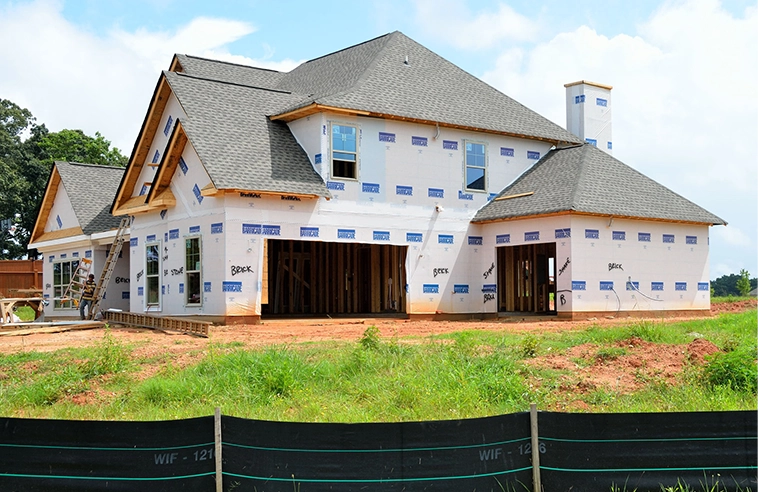Where are interest rates headed, and how will they impact the housing market?
Earlier this year, the Federal Reserve Board raised interest rates for the first time since 2018. Jerome Powell, chairman of the Federal Reserve, has stated that aggressive rate hikes are coming soon, and multiple price hikes will occur in 2022 and 2023. At the beginning of 2022, the rate was near zero. What will the rate rise to? That depends on inflation. Either way, mortgage rates, which typically move in the same direction as the federal interest rate, are going up, and this will impact the housing market.
Higher interest rates, and the impact on monthly payments
In mid-April, the average 30-year fixed interest mortgage rate reached 5%. This rate was less than 3% throughout 2021. In fact, other than a one-week stretch in 2018, rates have not touch 5% since 2011. For most of the decade, they were between 3 and 4%.
In March of 2022, the median sale price for a home was $405,000. If a homebuyer borrows $325,000 (assuming a standard 20% down payment) at 5% interest, their monthly payment would be $1,744.67. If rates had remained at 3%, the monthly payment would be $1,370.21.
Of course the increase in monthly payment will be even greater if borrowers need more money. It’s also possible that mortgage rates will rise above 5%. In the mid-1990s, mortgage rates ranged from 6 to 9%. If rates reach 9%, the same borrower will face a monthly payment of $2,615.02.
Rising mortgage rates and the housing market
In a Fortune article entitled “The housing market faces its biggest test yet,” writer Lance Lambert suggests rising interest rates will severely test the hot housing market. “Higher rates will increase buyers’ borrowing costs at a time when they’re already stretched thin by record home price growth. Simply put: This swift move up in mortgage rates amounts to an economic shock.”
Higher rates impacted the housing market in 2018. The one percentage point increase led to the housing market losing steam.
Why the market may be more resilient than expected
It makes perfect sense that the housing market loses steam due to increasing interest rates and high sale prices. Because the costs of buying home are elevated, some buyers will be priced out of the market. With fewer buyers, the price of homes will drop or at least hold steady. The market will be in harmony.
Cue the music?
Not so fast.
Bankrate, a trusted authority on personal finance, compares the current market to the market in 1994. It says of both, “…the Fed moved aggressively to slow economic growth, and mortgage rates were a casualty of the central bank’s war on inflation.”
There was a slight impact on home prices as they rose between 2 and 3% in 1994 and 1.7% in 1995. “That price pattern is similar to other periods of rising rates. Housing economists say home values tend to hold because sellers are reluctant to cut their prices and simply decide not to sell,” according to Bankrate.
Sales of existing homes were also not significantly impacted. From 1993 to 1994, sales rose from 3.7 million to 3.9 million homes, and they fell to 3.8 million in 1995. However, sales surpassed 4 million homes in 1996 when rates reached a high of 8.29 percent.
Not all markets are the same
Economic prognosticators lead people to respect weather forecasters because predictions regarding the weather are more often correct. In defense of economists, the challenge of predicting future economic activity is based on an endless number of variables. Each situation is unique in a way and therefore hard to predict.
“What’s fascinating about the housing market right now is the forces of supply and demand seem to be out of whack,” says Benjamin Keys, a Wharton real estate professor. Keys views the current housing market as unique because both interest rates and home prices are going up.
Keys notes that demand is greater than supply in the housing market. He says, “…other demographics are contributing to the trend: a strong labor market, higher personal savings during the pandemic, and millennials who survived the Great Recession and are now financially ready to buy homes for their growing families.”
The uncertainty related to the economy and various global issues lead Keys to conclude, “…there’s a ton of uncertainty about where rates are going to head in the coming year.”
Bankrate also notes that the current housing market is very different from the 1994 market. One difference is median home prices are significantly higher. In addition, there’s a severe shortage of available homes for sale. Ultimately, experts told Bankrate they expect that sales volumes will continue at a high rate. “While rising mortgage rates might rein in prices, a population bulge of millennials in their 30s and early 40s is driving demand for homes.”
In conclusion
So, what does the future hold for the housing market? Hmmm. All bubbles must burst at some point. However, low supply and high demand for housing are not going anywhere. Therefore, it seems that any pullback on sales volumes will be short-term.
Of course, if mortgage rates reach peaks not seen since the 1990s, the housing market will be more seriously impacted.




